Faith
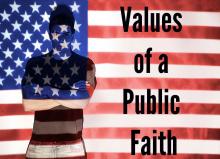
Editor's Note: This is part three of a three-part series from Dr. Miroslav Volf an a voice instructing us how to involve our values into our present politcal debates. To read part one go HERE and part two HERE.. From part one:
In this year of presidential elections, I have decided to summarize key values that guide me as I decide for whom to cast my vote. ...
14. Equality of Nations
Value: No nation represents an exception to the requirements of justice that should govern relations between nations. America should exert its unique international power by doing what is just and should pursue its own interests in concert with other nations of the world.
Rationale: “In everything do to others as you would have them do to you; for this is the law and the prophets” (Matt. 7:12).
Debate: The debate should not be whether America is somehow exceptional (and therefore permitted to do what other nations are not—for instance, carrying out raids on foreign soil in search of terrorists). The debate should, rather, be about what it means for the one remaining superpower to act responsibly in the community of nations.
Question to Ask: At the international level, would the candidate renounce a double moral standard: one for the U.S. and its allies and another for the rest of the world? Even when the candidate considers an American perspective morally superior, will he seek to persuade other nations of the moral rightness of these values rather than imposing them on other nations?
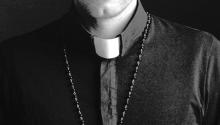
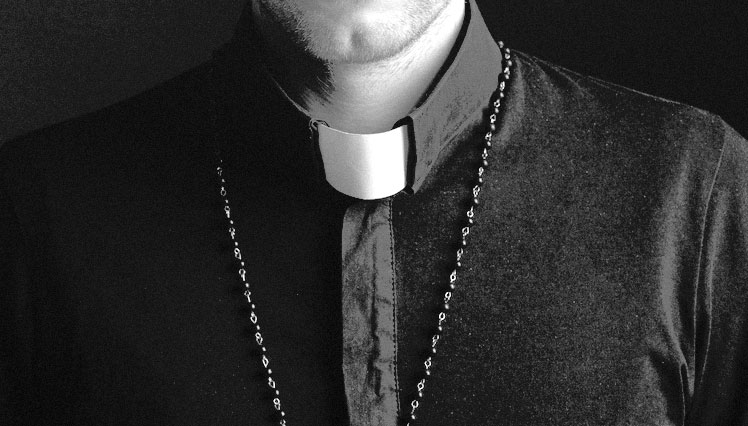 Editor's Note: Kevin Gonzaga tells his story of why he's part of the 20 percent of Americans who identify with "no religion in particular." Find more stories (or share your own) HERE. Read about the study HERE.
Editor's Note: Kevin Gonzaga tells his story of why he's part of the 20 percent of Americans who identify with "no religion in particular." Find more stories (or share your own) HERE. Read about the study HERE.
Three years ago when I arrived at seminary to pursue my calling to fulltime pastoral ministry, one would probably have struggled to find someone in my generation more committed to the ministry and vitality of the local church.
While imperfect, I believed the church was the best hope of the world, and it was better to stay and work toward change than abandon the church and look for greener pastures. A year and a half later, I wrote a blog post explaining that I was no longer a Christian. I fear that this would only deepen the stereotype that seminary is a place where people lose their faith, so I should explain.
The truth is I am one of growing number of people who choose not to affiliate with any organized religion. I am a “none,” and my journey to “none” started a long before I left for seminary. My disillusionment with, and eventual abandonment of, Christianity did not center around one traumatic event that shattered my faith, but rather it was something that coalesced from numerous experiences over a long time.
It really started when I began studying the scriptures for myself in college. I was shocked to find many things I had been taught by the Church were wrong, were not in the Bible, or were even contrary to what the scriptures actually taught.

Editor's Note: This is part one of a three-part series from Dr. Miroslav Volf an a voice instructing us how to involve our values into our present politcal debates.
In this year of presidential elections, I have decided to summarize key values that guide me as I decide for whom to cast my vote. There are three basic elements of choosing a candidate for public office responsibly:
- Values we hope the candidate will stand for and the order of priority among them (which requires of us knowledge of faith as a whole, rather than just a few favorite topics, and knowledge of how faith applies to contemporary life)
- Ways in which and means by which these values are best implemented in any given situation (which requires of us a great deal of knowledge about how the world actually functions and what policies lead to what outcomes — for instance, whether it would be an economically wise decision to try to reintroduce the gold standard)
- Capacity — ability and determination — to contribute to the implementation of these values (which requires of us knowledge of the track record of the candidate)
Most important are the values. As I identify each value, I will (1) name the basic content of the value, (2) give a basic rationale for holding it, (3) suggest some parameters of legitimate debate about it, and (4) identify a key question for the candidate.
I write as a Christian theologian, from the perspective of my own understanding of the Christian faith. Whole books have been written on each of these values, explicating and adjudicating complex debates. In providing a rationale for a given value, I only take one or two verses from the Bible to back up my position, more to flag the direction in which a rationale would need to go than, in fact, to strictly offer such a rationale.
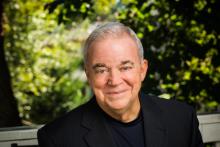
The Pew Forum recently released a new study, “Nones on the Rise.” This was not about my friends called the “Nuns On The Bus,” who just did a tour around the country focusing on social justice. Rather, It details the concerning trend of those in our country who have given up on religion altogether.
Social scientists tell us that adults, especially young adults, are increasingly disconnected from our established religious traditions. “Nones,” the Pew forum calls them, have grown from 15 percent of U.S. adults to 20 percent in only five years. One-in-three adults under 30 check the religious affiliation box, “None of the above” or “Unaffiliated.” Despite the fact that 68 percent of nones believe in God, only 5 percent of them attend church once or more a week, and 22 percent attend monthly/yearly. (Learn more about this group in our blog series Meet the Nones.)
But the focus on the next generation is not all bad news. On Tuesday, I had the pleasure of moderating a diverse panel of seven young evangelicals. Each had unique experiences and backgrounds. Some self-identified as liberal, while others self-identified as conservative. But those political ideologies could not separate their core evangelical principles.
Editor's Note: Theologian extraordinnaire Tripp Hudgins put together this edition of First Thoughts on living with abundance, butting up against living with anxiety.
Art and iconography — both ancient and modern — from Ethiopian Orthodoxy (also known as Tawahedo or "being made one" in the Ge'ez language that remains the official language of the Orthodox liturgy here) were ever-present — in shops, restaurants, and hotel lobbies as well as in the myriad churches and monasteries, and the sounds of ancient Christian prayers and the chants of monks filled the air from the capital city of Addis Ababa to the kebeles (or neighborhoods) on the outskirts of Bahir Dar, another major city about 60 km from the Sudanese border.

Were I one for object lessons I’d have brought a nice sharp axe with me into the pulpit today. Because it’s only once in awhile that we get to hear Jesus talk about brutal self-mutilation as a sign of discipleship.
Growing up I was terrified of those verses in Mark’s Gospel that we just heard – the ones where Jesus suggests that if your hand causes you to sin cut it off, and if your foot causes you to sin hack that off too, and if your eye causes you to sin gauge the sucker out. I remember the summer I was 11 years old when I stole candy from KMart and then hid it in the heat duct in my room. And I remember hearing this passage soon after that and thinking how my hand had indeed caused me to sin. And then and there I decided to never steal again lest Jesus insist I hack off my own limbs.
The problem, of course, is that my hand has never caused a darn thing. My eye doesn’t cause me to sin. My foot can’t be held accountable for my missteps. If you want to find the culprit behind my sin don’t look at my hand. Look at my heart. My poor feet just do what they’re told.


Editor's Note: Megan Monaghan Rivas tells her story of why she's part of the 20 percent of Americans who identify with "no religion in particular." Find more stories (or share your own) HERE. Read about the study HERE.
There are never really two kinds of people in the world. But for purposes of this post, I’ll posit that there are two kinds of “nones” in the world – “nones” who would be part of a church if they could just find the right one, and “nones” who have no desire to be part of a church even if it matched them perfectly. I place myself in the latter category.
Like many “nones,” I started out as a “some.” I was reared in the Roman Catholic Church and educated in Catholic schools. As luck and the development curve would have it, just after confirmation (at age 14) I started finding out things about the church that I could not stand up and be counted for. The church’s policies concerning women and homosexuals seemed to me to stand in deliberate polar opposition to the Gospel message. And the church is not known for willingness to change from the inside. I didn’t have another 2,000 years to wait. My first “adult” move in the church was to leave it.
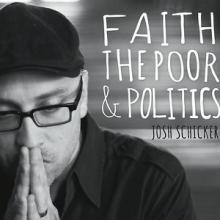
I couldn’t resist: I heard that a singer/songwriter in Atlanta was coming out with an album titled, Faith, the Poor, and Politics. Josh Schicker currently serves as Worship Leader in Mission at North Avenue Presbyterian Church in Atlanta. He’s also an accomplished musician, recording songs and performing at Eddie’s Attic most recently.
Faith, the Poor, and Politics is both catchy and contemplative. It’s spiritual but not in-your-face religious; personal, but not isolated from community. Below, you can read his thoughts on the album and other things in the realm of faith, politics, and culture.

In a world that seems completely and irrevocably divorced from the teachings of Christ, where in contemporary society is there a place for the Christian voice? Politicians shamelessly use Jesus’s name to justify their authority and gain influence without bothering to unpack the full depth of theological and ethical implications of their words. Corporations are granted the rights of individuals, but some individuals are denied the resources they need in times of crisis to support their families and livelihoods. And the public debate is so full of vitriol and hyperbole that dehumanization and outright hatred of those with whom we disagree has become the norm. In light of the situation in which we find ourselves, how then should Christians behave?
While it might seem appealing to remove ourselves from secular society altogether and forsake the world in all its brokenness in favor of a uniquely Christian ethic that appeals and applies only to us, Christians have an obligation to serve as active participants in public discourse— elevating the conversation rather than abstaining from it so that we may try to live the truth and convictions of our faith.
PBS Religion & Ethics Newsweekly has launched a new mini-series on the rise of the unaffiliated. Go HERE to learn more.
Watch None of the Above: Who Are They? on PBS. See more from Religion & Ethics NewsWeekly.

NEW DELHI — Political leaders in the tiny Buddhist nation of Bhutan have announced a nearly six-month ban on all public religious activities ahead of the upcoming elections, citing the Himalayan nation's constitution that says “religion shall remain above politics.”
A notification by the Election Commission of Bhutan asks people's "prayers and blessings" for the second parliamentary election, expected in June 2013. But it also states that religious institutions and clergy "shall not hold, conduct, organize or host" any public activity from Jan. 1 until the election.
The ban comes a year after the country's religious affairs ministry identified Buddhist and Hindu clergy who should be barred from voting to keep a clear distinction between religion and politics.

[The "nones"] recite history and Christian leadership's collusion with the agents of empire-building and warfare. Then they say something like, “I'd rather live like Jesus than be a Christian.”
They see the Church as the rich young man and they wonder if anyone actually follows Jesus anymore.
Of course, this is not the only demographic shift at work in the religious life of the world.
There are more Anglicans in Nigeria than there are in England.
More Presbyterians in Ghana than in Scotland. ..
More Baptists in Southeast Asia than in the Southeastern United States.
More Christians go to church in China than in Europe.
In 1900, 71 percent of the world's Christians were in Western Europe. By 2000 that percentage dropped below twenty percent in some European nations.
Here's the real kicker: these are not problems to fix. They are simply realities to be faced.

It’s always annoyed me when people assume that, because I’m a Christian, I must also be socially conservative on all requisite issues. And while I understand those who lean further right because of their Christian beliefs, I take issue with those who suggest that being both a follower of Christ and a social progressive are mutually exclusive.
In fact, most of my positions on social issues can be traced back to my faith, which goes to show that the spectrum of beliefs taken from any given faith, as well as the many ways in which those beliefs are applied, is wide and arguably still growing as we continue to become increasingly pluralistic and intertwined.
Depending on your perspective, it could be argued that the landscape of presidential candidates either reflects such religious diversity, or that it’s still more of the same old majority rule at play, with a few minor cosmetic adjustments. For some, the fact that a Mormon is the Republican nominee is nothing short of astonishing, and what’s more, that the evangelical right is generally finding their way toward alignment with Mitt Romney’s presidential ticket.
It’s also worth noting that last week's vice presidential debate was the first time in history that we’ve had two Catholic VP nominees running against each other. The only fairly typical one in the group (unless you ask the Muslim conspiracy theorists, that is) is Barack Obama who is a member of the mainline protestant Christian denomination, the United Church of Christ.

Except for presidential candidates and some parts of the Bible Belt, the days when church membership was necessary for social acceptance are long gone. Many Americans view religion as suspect or superfluous or both.
In fact, the latest data from the Pew Forum on Religion & Public Life say that a record-high one in five Americans -- and one in three adults under age 30 -- are religiously unaffiliated.
So why did all 1,500 seats sell out for a debate I moderated a few months ago entitled “Has Science Refuted Religion?” at the California Institute of Technology? Why should the brilliant minds of the Caltech community even care, especially since skeptics, rather than true believers, made up the majority of the audience?
As the dean of a theology school, the question is of high interest to me, and I think I know the answer.

When we listen to political debates about which public policies will strengthen the economy, it is easy to get lost in a statistical maze. Each side presents economic data in a way that supports their own theory of the case.
The Congressional Research Service (CRS) is a branch of the Library of Congress that can help us make our own assessments regarding public policy. According to the CRS website, its purpose is to provide “authoritative, confidential, objective and nonpartisan” analyses to members of Congress.
The relationship between tax rates and the economy is an issue in the current campaign. Thinking about this issue, the CRS looks at empirical data that may or may not confirm theoretical models or ideological assumptions. Thus, like the early TV detective Joe Friday, they want “just the facts ma’am,” and then they try to reach conclusion from these facts.

A friend of mine forwarded a link to a recent Huffington Post article about the most and least religious cities in the United States. Interestingly – but hardly surprising – you have to scroll waaaay down the list to find my current city of Portland, Ore.
“Looks like you have your work cut out for you,” he said. He’s right; I’ve met folks here who work in churches that tell people they work at a nonprofit when asked what they do, leaving the bit about the nonprofit being a church until they get to know each other better. And of course, we knew this when we came to the Pacific Northwest.
In fact, that’s part of what made me want to be here.
For some, there is great appeal in coming to an “unchurched” community, mainly because of the notion that this means there are that many more people in need of saving. And while this may or may not be true, there’s a lot of presumption that goes into saving those without religion, while assuming those who claim a faith are the ones to do the “saving.”
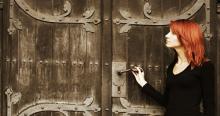
OK, church folks. Fasten your seat belts. But don’t hunker down.
There’s a new study out this week that shows that one-in-five Americans has no religious affiliation. Not Baptist, not Catholic, not Lutheran, not Jewish, not Muslim.
For those of us in the world of organized religion, this just adds more data to a trend we have seen accelerating over the last decade.
In 2007, about 15 percent of the adult population in the U.S. described itself as unaffiliated with any religion. In a comparable survey done this summer and released on Tuesday by the Pew Research Center’s Forum on Religion and Public Life, the number hit 20 percent. And if you just focus on those under 30, the religiously unaffiliated constitute one third of that group.
Among those of us who are professional religious types, this is the kind of data that can prompt a lot of gloomy introspection about relevance and a lot of finger pointing at those who are not interested in the same kinds of religious expression that we are.
Let me suggest there’s a less gloomy and less judgmental way to think about this data.


Editor's Note: Melissa Otterbein tells her story of why she's part of the 20 percent of Americans who identify with "no religion in particular."Find more stories (or share your own) HERE. Read about the study HERE.
A "recovering Evangelical," author Melissa identifies with the "nones" after church experiences in the non-denominational Church, Lutheran Church, Church of God, United Church of Christ, and the kind of Church that happens when you have hour-long conversations with people who are materially poor yet rich in spirit. Each of these "Churches" (and those not mentioned) depict Christ in beautiful ways, she believes, but feels that solely identifying with a denominational designation hasn't seemed to fully capture her faith experience. Though "none" might seem like a shocking response to "which religious tradition do you closely identify with?" it's one that, "offers freedom in Christ that brings me to closer to the Kingdom of God in the here and now."
I am tired of explaining away my faith.
I am tired of defending, “proving,” withholding my true feelings for fear of religious retaliation.
I’m tired of watching some people argue their faith, trying to “win people to Christ” with their cogent, convincing “answers.”
I’m tired of watching Jesus be sold, marketed, put on display.
I’m tired of watching certain people try to convince the world why their God is the right God.
I’m tired of listening to people deify their Bible by retorting this verse and that verse when our God is so much bigger than the sole medium of Genesis-Revelation.
I’m tired of platitudes about the Word and faith and sin and grace that I’ve heard over and over again; for every time I hear these trite remarks, I question if we’ve lost the unadulterated beauty behind such venerable passages.